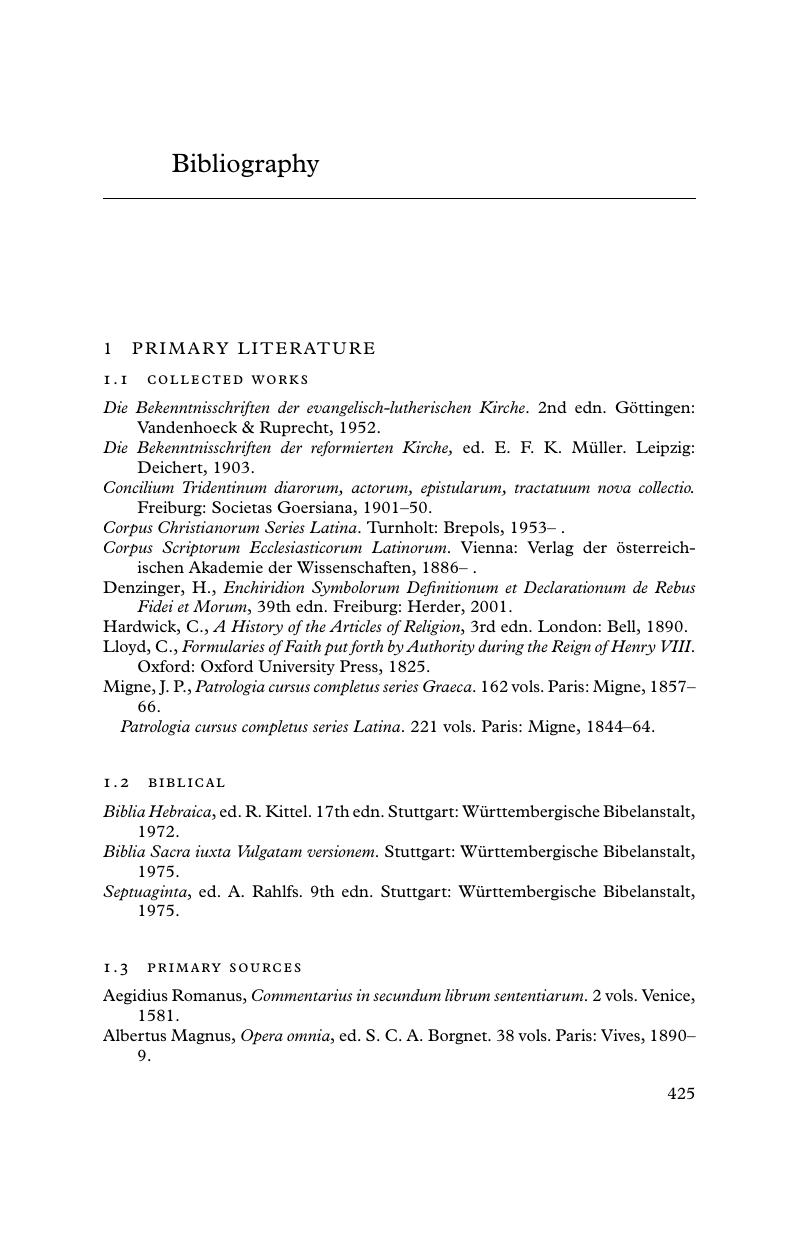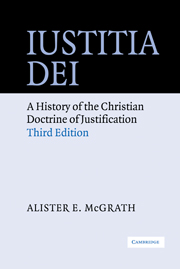Book contents
- Frontmatter
- Contents
- Preface
- List of abbreviations
- 1 Justification: the emergence of a concept
- 2 The Middle Ages: the consolidation of the doctrine
- 3 Protestantism: the Reformation debates on justification
- 4 Catholicism: the Council of Trent on justification
- 5 The modern period
- Glossary of medieval soteriological terms
- Bibliography
- Index
- References
Bibliography
Published online by Cambridge University Press: 05 June 2012
- Frontmatter
- Contents
- Preface
- List of abbreviations
- 1 Justification: the emergence of a concept
- 2 The Middle Ages: the consolidation of the doctrine
- 3 Protestantism: the Reformation debates on justification
- 4 Catholicism: the Council of Trent on justification
- 5 The modern period
- Glossary of medieval soteriological terms
- Bibliography
- Index
- References
Summary

- Type
- Chapter
- Information
- Iustitia DeiA History of the Christian Doctrine of Justification, pp. 425 - 443Publisher: Cambridge University PressPrint publication year: 2005



